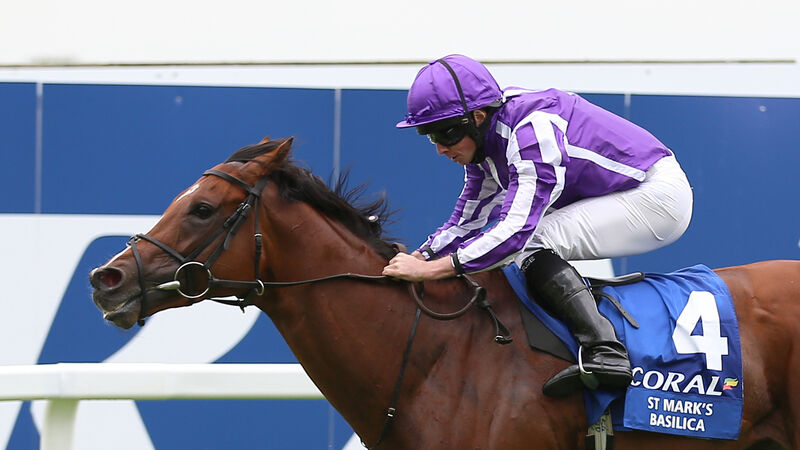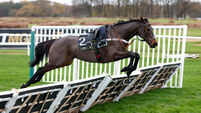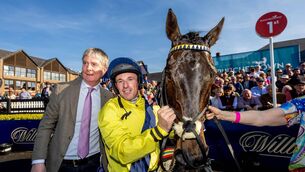Ruby Walsh: Do the powers that be have the stomach to make the big demotion calls?

St Mark's Basilica ridden by Ryan Moore. He did what he felt he had to do to win. It wasn’t careless, it was calculated, writes Ruby Walsh. Picture: Nigel French/PA Wire.










